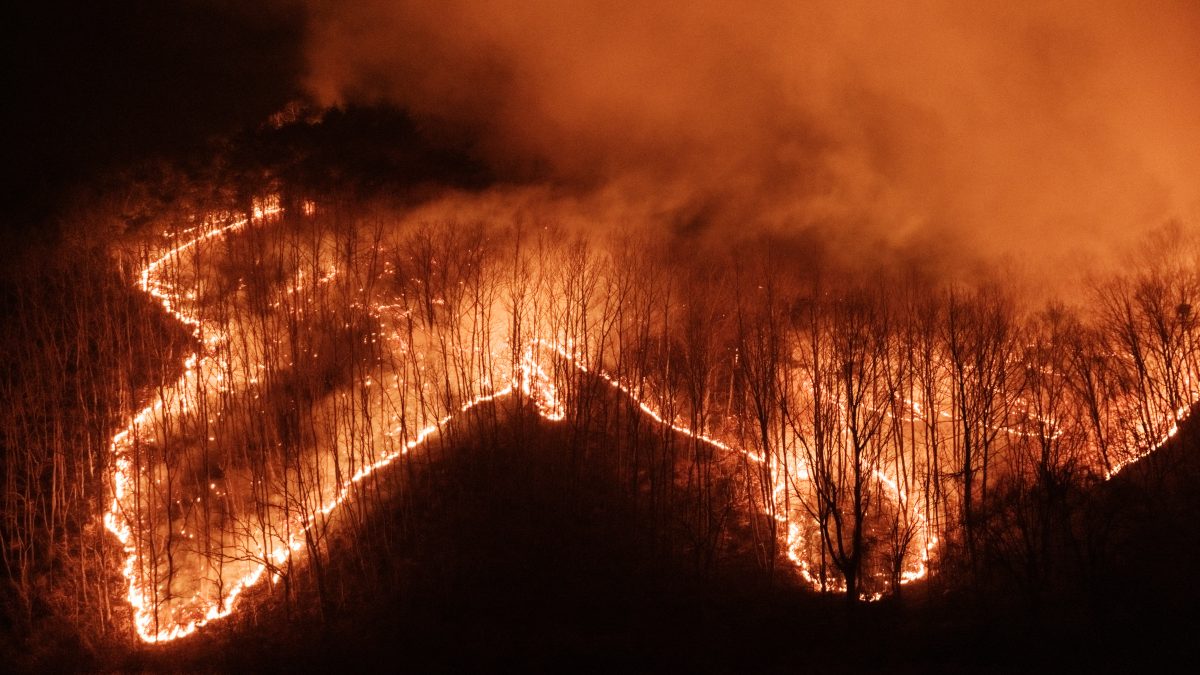South Korea is contending with its worst-ever wildfire disaster as blazes that began nearly a week ago in the central county of Uiseong more than doubled in size on Thursday, sweeping through ancient heritage sites and displacing tens of thousands of people.
The fires have burned over 33,000 hectares (81,500 acres) of land– dwarfing the country’s previous largest forest fire in March 2000– and left at least 26 people dead, according to emergency officials. Authorities have described it as the most severe natural fire event in the nation’s history.
Acting president Han Duck-soo told an emergency response meeting that the country was facing a critical moment, citing the high number of casualties and the extraordinary speed of the fire’s spread.
Driven by gusty winds and prolonged dry weather, the blazes have surged eastward across the rugged, mountainous landscape in the southeast, nearly reaching the coastline.
Military steps in to aid firefighting
More than 120 helicopters have been deployed across three provinces, according to the safety ministry, with the military releasing aviation fuel reserves to help sustain firefighting operations. South Korea’s steep terrain makes aerial firefighting one of the most effective strategies for containing forest fires.
Weather forecasts have offered little relief. Although light rain is expected in parts of the southwest, meteorologists predict less than five millimetres of precipitation in most of the affected regions. Officials said the rainfall is unlikely to make a significant difference in firefighting efforts.
Impact Shorts
More ShortsHeritage sites destroyed
Among the cultural casualties are centuries-old Buddhist temples.
Unramsa Temple, located on Cheondeungsan Mountain and believed to be over a thousand years old, was completely consumed by fire.
Another, the Gounsa Temple– originally established in the 7th century– also suffered severe damage, with roughly 20 out of its 30 structures destroyed earlier in the week.
National treasures housed at Gounsa, including artefacts dating back to 681 CE, were evacuated and relocated to safer areas before the fire reached the site, according to local reports.
More than 200 structures have been damaged or destroyed overall, and over 27,000 residents have been forced to evacuate.
Climate change linked to fire’s intensity
Experts have called the Uiseong blaze unusually extreme in both scale and speed, pointing to broader global trends. Research groups, including the nonprofit Climate Central, have noted that higher temperatures– intensified by human-driven climate change– have contributed to seasonally dry conditions , making the landscape more susceptible to fire.
Environmental scientists have warned that such megafires are likely to become more frequent as the planet warms, especially in regions already prone to seasonal droughts.
As crews continue to battle the flames, officials have urged residents in fire-prone areas to remain alert and prepare for possible evacuations, with weather conditions expected to remain unfavourable in the coming days.
With inputs from agencies
)